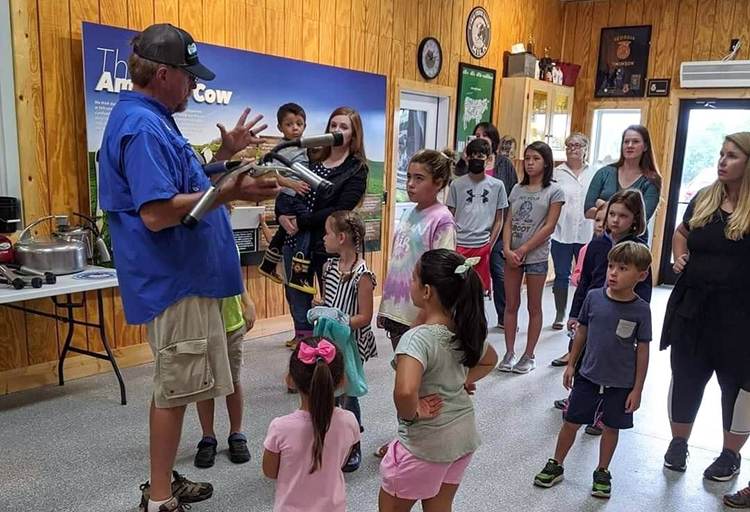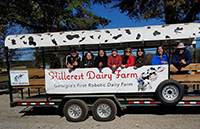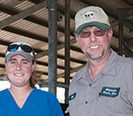
Many dairy farmers do not have a lot of time or staff to be able to give tours to groups of people to educate the community, but education is so important. Children now are generations away from a farm, and they have hardly any knowledge of where their food comes from. My dad has gotten to the age where he does less of the farm labor and more of the feed shopping and giving tours to groups and schools.
Five years ago, this wouldn’t have been possible. We didn’t have the robots then, or the knowledge that we needed to let him step back. But now, he is happy to have people come through, and he teaches them all about what we do.

Another common question could be, “Why is that cow over there all by herself in the pen?” The correct answer in our mind might be, “Well, she is in a sick cow pen.” But it needs to be more detailed than that for them. We could explain that the cow is sick and we had to give her some medicine. When a cow is sick, we socially distance them for a few days. Also, while she is on the medicine, her milk cannot be harvested for food, so we must milk her separately and dump the milk down the drain until all the medicine is out of her body. Then, once she is well, she can return to the herd with the rest of the cows.
When explaining what we do as farmers, we need to be more informational in a way that a general audience can understand. They want to know where their products are coming from, and it is our duty to make sure they understand that their products are wholesome and healthy for them to consume. They also want to know that the animals the products come from are well taken care of.

Mark and Caitlin Rodgers are dairy farmers in Dearing, Georgia. The Rodgers have a 400-cow dairy that averages 32,000 pounds of milk. Follow their family farm on Facebook at Hillcrest Farms Inc.








